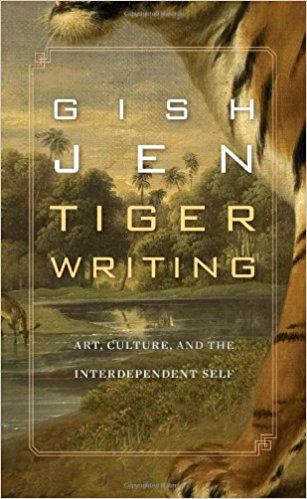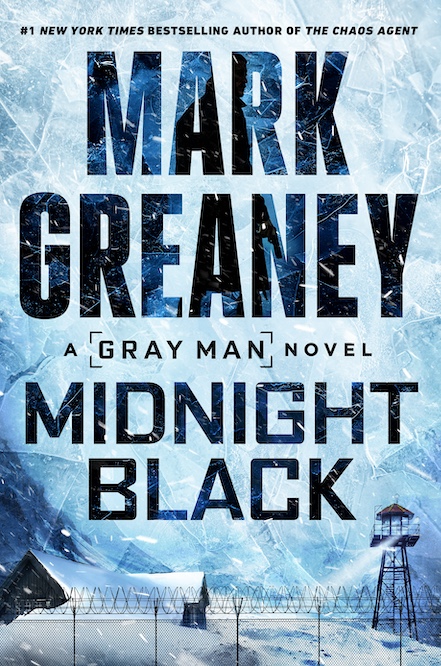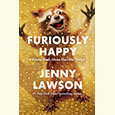Starting with a Footnote
Dolen Perkins-Valdez turns a little-known bit of history into a powerfully moving novel
Wilberforce University, near Xenia, Ohio, is one of the nation’s oldest historically black universities, the first to be owned and operated by African Americans. Behind its founding in 1863 is a fascinating yet all-but-forgotten piece of history: the school stands on what was once the site of Tawawa Resort, a place where Southern slaveholders vacationed, often in the company of their enslaved mistresses. It’s this setting that Dolen Perkins-Valdez imagines as the backdrop for her engrossing debut novel Wench, now out in paperback. Publishers’ Weekly called it “heart-wrenching, intriguing, original and suspenseful.”
The book tells the story of four slave women who grow close while staying with their white owners at Tawawa: Mawu, Sweet, Reenie, and the protagonist, Lizzie. An opportunity to flee the resort and take shelter in the free North tests the women’s loyalty to their masters and their own children. Perkins-Valdez recently answered questions from Chapter 16 via email.
Chapter 16: How did you discover Tawawa? Did you immediately think to yourself, “This would be an excellent subject for a novel,” or did that realization come later?
Perkins-Valdez: I discovered Tawawa Resort while reading a biography of W.E.B. DuBois in 2004. When I got to the section that discussed the period of DuBois’ life when he was a professor at Wilberforce University, it mentioned that Wilberforce was originally a resort hotel that must have been the most unusual hotel in America because it was popular among slave owners and their enslaved mistresses. I was stunned by this historical footnote. At first, I did not know what I would do with it. I did not know if it would be a scholarly article or a short story. Eventually, when the archive failed to answer my questions, I decided to enter the story through the imaginative world of the novel.
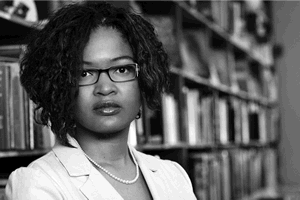 Chapter 16: One thing I admire about Wench is that, while it is rooted in compelling historical fact, the characters and their personal struggles are the novel’s lifeblood. Can you talk a little bit about the process of writing historical fiction? Did you meet any unexpected challenges or surprises along the way?
Chapter 16: One thing I admire about Wench is that, while it is rooted in compelling historical fact, the characters and their personal struggles are the novel’s lifeblood. Can you talk a little bit about the process of writing historical fiction? Did you meet any unexpected challenges or surprises along the way?
Perkins-Valdez: Although I am not formally trained as a historian, I have a historian’s curiosity. I like to refer to myself as an “armchair historian.” Little-known historical facts pique my interest, and I’m off and running to the library! I never imagined myself writing historical fiction, but when I think about it, it is a natural fit with my personality. My most difficult challenge is not the period or the larger historical frame; my challenge is making sure I portray the tiny everyday social realities accurately. I continue to study period fashion, architecture, food, language. Sometimes I wish I could just jump in a time machine and go back to observe. Since we can’t do that, I must study and use my head. Every now and then, it is thrilling to have the world come alive in your head and recognize that you have mastered a particular scene. Often, however, I feel so distant, so removed. It is a challenge to get it right.
Chapter 16: Are the characters fully fictional, or do they have historical antecedents as well?
Perkins-Valdez: The characters are fully fictional. I recently read March by Geraldine Brooks and I did experience such a thrill when actual historical people appeared in the novel. That is fun to read. Perhaps I will try that in a future novel.
Chapter 16: Lizzie’s master, Drayle, is a surprisingly sympathetic character. Was it difficult to write him this way?
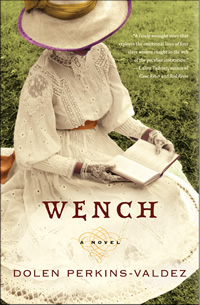 Perkins-Valdez: Drayle was definitely a difficult character to write. I wanted him to be sympathetic enough for us to understand Lizzie’s affection for him. Yet I also understood that he was a proslavery man of his time, and I had to portray him within that context. It was a difficult balance. I have always felt, however, that slavery was such a morally bankrupt institution that it corrupted everyone who had anything to do with it. With that in mind, I was able to maintain a sympathetic outlook on Drayle as a character.
Perkins-Valdez: Drayle was definitely a difficult character to write. I wanted him to be sympathetic enough for us to understand Lizzie’s affection for him. Yet I also understood that he was a proslavery man of his time, and I had to portray him within that context. It was a difficult balance. I have always felt, however, that slavery was such a morally bankrupt institution that it corrupted everyone who had anything to do with it. With that in mind, I was able to maintain a sympathetic outlook on Drayle as a character.
Chapter 16: In the final chapter of the book, Mawu tells Lizzie the story of how she came by her name—and how it made her feel a connection to Lizzie. What led you to close the book on this note?
Perkins-Valdez: I actually began the book on this note. The story of the Mawu-Lisa comes from West Africa, the kingdom of the Dahomey. I have long been fascinated by how some of these creation mythologies were transported to the New World. The Mawu-Lisa is an androgynous god that contains many diametrically opposed energies. When the book begins, we see antithetical traits in Mawu and Lizzie. As the book continues, we see the women gradually recognize how much they need one another and how their energies are as complementary as they are oppositional.
Chapter 16: In the acknowledgements, you thank “my little Elena, who taught me what Lizzie’s love for her children meant to her.” Was motherhood itself a part of the research process in writing this book, and, if so, how?
Perkins-Valdez: I’ve often said that my novel does more than “wink” at nineteenth-century autobiographical slave narratives. One of the clear themes of those narratives by women is motherhood. I knew that for many female slaves, escape was an impossibility because they refused to desert their children. I didn’t research motherhood in slavery while writing the book, but I did often go back to those early slave narratives, such as Mary Prince and Mattie Jackson. Having my own child definitely increased my sensitivity to Lizzie’s plight, too.
To read Chapter 16’s review of Wench, please click here.

